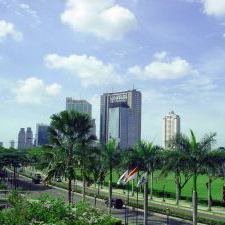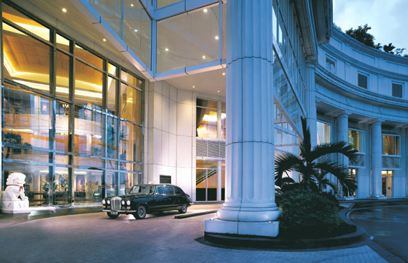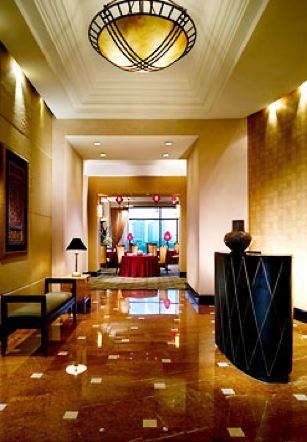 At least eight people died and 53 more were injured, including eight Americans, during two deadly suicide attacks Friday morning inside a pair of high-profile hotels in Jakarta, Indonesia.
At least eight people died and 53 more were injured, including eight Americans, during two deadly suicide attacks Friday morning inside a pair of high-profile hotels in Jakarta, Indonesia.
The bombs, which detonated two minutes apart at the neighboring J.W. Marriott and the Ritz-Carlton hotels, appeared to be part of a coordinated attack. The two hotels are both luxury high rises located in Jakarta’s upscale business district.
At the Marriott the attackers had checked in as guests on July 15 and apparently used their room as a sort of command post to assemble their bombs.
At 7:47 a.m. Friday one of them detonated a device as he walked near the hotel restaurant, a scene that was captured on the building’s video surveillance system. Police later found an unexploded bomb in Room 1808 of the hotel.
Read more about Travel Safety & Security in our Terrorism & Security section.
At the Ritz, the bomb blast, which occurred near the second-floor restaurant, destroyed the lobby and ripped the façade off the building. Shards of glass and debris littered the street in front of the hotel and caused mass chaos in the area.
 Among the injured were eight Americans, though State Department sources say none were seriously hurt. Two Canadians, two Australians and dozens of other Westerners, mostly business travelers, were also injured and taken to overflowing local hospitals.
Among the injured were eight Americans, though State Department sources say none were seriously hurt. Two Canadians, two Australians and dozens of other Westerners, mostly business travelers, were also injured and taken to overflowing local hospitals.
At least one of the eight casualties was also New Zealand-born businessman, Timothy MacKay. MacKay, the president of cement company PT Holcim Indonesia, was attending an Indonesian business forum held at the Marriott Friday morning. Several other attendees were injured.
Officials suspect that the attackers are associated with the violent extremist group Jemaat Islamiya (JI), which has perpetrated other hotel attacks in Indonesia, including one in 2003 at the same Marriott and the 2002 bombing of a nightclub in Bali. However, no one has come forward to claim responsibility for the bombings.
Read about one of Indonesia’s most special places in Grateful Traveler: Mount Bromo, Indonesia. Or learn more about Indonesian cuisine with Global Gourmet: Food Gifts From Around the World.
Indonesian President Susilo Bambang Yudhoyono suggested that the attacks, which are the first in the country in four years, may be linked to the recent election which earned him another five-year term as president. Most independent security analysts seem to believe that JI is the likelier attacker.
As a result of Friday’s attacks, high-profile hotels in New York have stepped up security, and the English soccer team Manchester United decided to cancel a planned trip to Jakarta.
 Many were shocked by the bombings because Indonesian hotels have a reputation for tight security, but the terrorists seem to have employed a relatively a new tactic to achieve their aims of destruction and murder.
Many were shocked by the bombings because Indonesian hotels have a reputation for tight security, but the terrorists seem to have employed a relatively a new tactic to achieve their aims of destruction and murder.
Nearly all high-profile hotels in Indonesia have strict security measures such as controlled access points, video surveillance, metal detectors, vehicle screening, and crash barriers, though some critics claim that they are cursory at best.
The Indonesian government has also been very proactive in its crusade against the Islamic militants of the JI. In just the last few weeks security forces have detained dozens of militants in wide-ranging sweeps and killed several purported members during shoot-outs.
Though Jakarta has not been the scene of terrorism for four years, some other Asian cities have not fared as well, with terrorists typically targeting hotels that are either owned or frequented by Westerners.
In Mumbai in November 2008, a heavily-armed group of attackers stormed the Taj Mahal Palace & Tower, Oberoi and Trident hotels and kept them under siege for nearly three days, killing 165 people in the process. And in Islamabad in September 2008, 65 people were killed after suicide bombers rammed a truck into a Marriott hotel.
By Karen Elowitt for PeterGreenberg,com.
Related links: Associated Press, Reuters, Bloomberg, Wall Street Journal, Forbes












